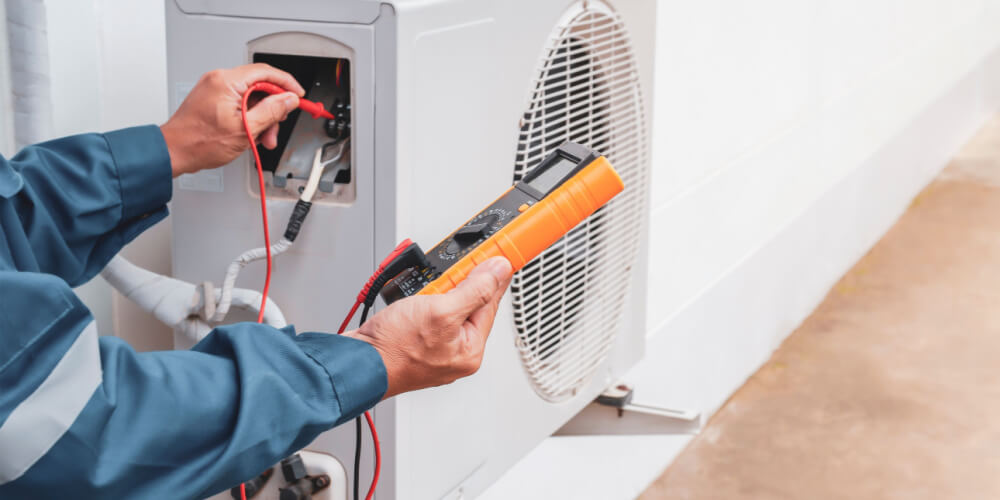
Did you know that heating systems account for 32 percent of your building’s total energy consumption, and air conditioning uses another 9 percent? By taking steps to improve HVAC energy efficiency, you can reduce utility bills and boost profits.
As the thermometer drops, you’re not alone if you are concerned about escalating energy expenses eating into your bottom line. You can’t change rising rates, but you can do something about your energy usage. Here are 8 ways you can improve heating and cooling efficiency.
8 ways to improve HVAC energy efficiency
1. Don’t neglect planned HVAC maintenance
Regular planned maintenance ensures that your heating and cooling systems are operating at peak efficiency. By inspecting the equipment, cleaning and making small repairs, you prevent problems that make the system have to work harder and run longer to reach the set temperature. That means it uses less energy.
Make sure you’re getting maintenance on the right schedule. Depending on your equipment’s age, condition, and the usage environment, you might need maintenance more than one or twice per year.
2. Check and change air filters
Even if you’re fine with planned maintenance in the spring (for air conditioning) and fall (for heating), you might benefit from more frequent air filter changes. That’s because air flow is critically important to your HVAC energy efficiency. Clogged filters lead to reduced airflow, which not only uses more energy but can also lead to system damage and breakdowns.
Changing filters isn’t complicated and you can do it yourself between planned maintenance visits. Your technician can provide extra filters for you or give you the specs so you can purchase them yourself.
3. Upgrade your controls
Investing in smart thermostats or a building automation system (depending on the size of your space) can greatly reduce your energy consumption. That’s because you can set up schedules for your HVAC systems based on when people are in the building. You don’t have to rely on remembering to adjust the thermostat.
Here’s another tip: invest in tamper-proof thermostats to end the “thermostat wars” between employees who don’t agree on the temperature settings.
4. Seal and insulate ducts
You’re losing between 25% and 40% of heated and cooled air through leaky ducts, according to the U.S. Department of Energy. Over time, your ducts can develop cracks and holes where air leaks into crawl spaces. Get a duct inspection to make sure yours are in good condition. And you can improve HVAC energy efficiency even more by adding duct insulation.
While you’re at it, make sure you’re not wasting conditioned air through doors and windows that are left open. And check to make sure employees have not blocked HVAC registers and returns, which also reduces air flow and impedes system performance.
5. Get an energy audit
There are many changes you can make in your building that improve HVAC energy efficiency by reducing heating and cooling loads. To assess your energy usage and benchmark against similar buildings, you can get an energy audit through your local utility company and NJ Clean Energy programs. Here’s what you get from an audit:
- Analysis of your energy usage
- Find out where and how you’re wasting energy in your building
- Prioritize fixes and improvements that can save you money
- Reduce your carbon footprint
6. Retrofit older equipment
If your HVAC equipment is older but you’re not yet ready for a complete replacement, consider a retrofit to improve both HVAC energy efficiency and system performance.
With a retrofit, you replace key components with newer technology, and you also have the opportunity to make design changes that can make your system more efficient and effective. It’s faster, less expensive, and less disruptive to your business.
7. Upgrade to more efficient equipment
If your HVAC systems are more than 15 to 20 years old (depending on the type), and they have been underperforming and driving up your utility bills, it may be time to consider an upgrade.
Heating and cooling system technology has improved quite a bit since your old systems were installed. Not only are they vastly more energy efficient, but they offer comfort improvements, too. One example is variable speed air conditioning systems that operate at the precise capacity needed for the current conditions. They offer excellent energy efficiency and are very quiet.
By upgrading, you also have the opportunity to get a system that’s properly sized and designed for the current needs of your business.
And, you can get help on the cost with federal tax credits and utility company rebate programs.
8. Don’t skimp on installation quality
If you’re planning to invest in a new HVAC system, don’t go with the cheapest installer you can find. The quality of your installation will affect the performance you get from your new equipment as well as its energy efficiency.
You need experts to create the right system design for the specific needs of your building and your business, including equipment placement and ductwork layout and sizing.
Worthing Air can help you there. Our installers are highly trained and experienced with commercial and industrial HVAC installation, and follow industry standards to deliver air-tight, reliable systems. See all the new install projects we have completed.
Call us today at 973-575-5276.
Worthing Air is the HVAC service partner more NJ companies rely on. Efficiency, quality, and integrity have been the backbone of our operation for over 40 years. Our technical expertise ensures safe, high-quality, and timely workmanship on every project.
